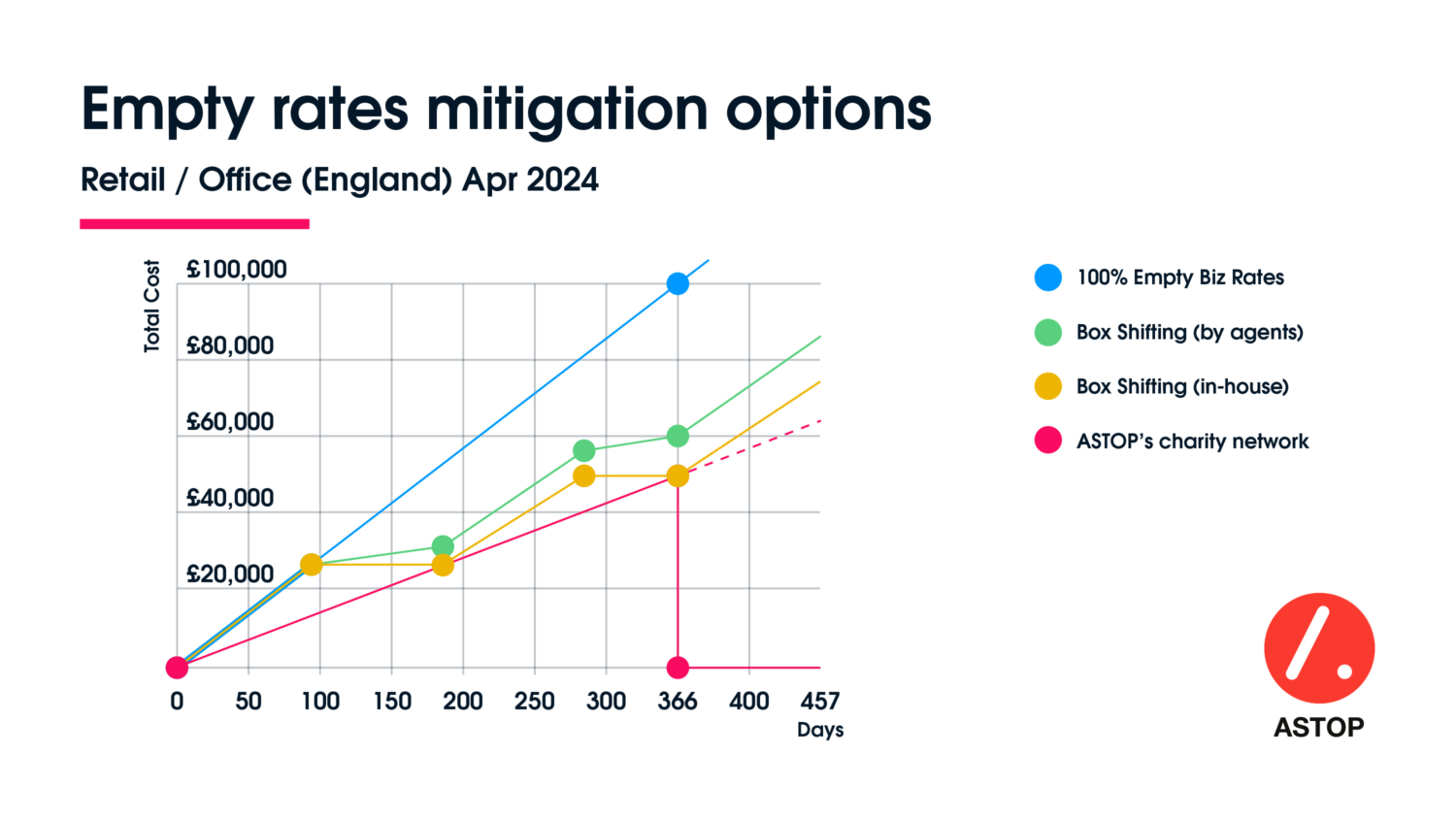The ‘WHY’ of Expected Empty Property Business Rate Changes
Reviving our communities was at the forefront of ASTOP’s February 2024 industry event. In our latest video, ASTOP founder Shaylesh Patel explains his mission to provide the commercial property sector with a comprehensive understanding of the charity world, forging meaningful connections between the two areas in the context of likely changes to empty property business rates legislation.
Shaylesh was joined by Bassam Mahfouz, a local councillor and CEO of a Kingston-based charity benefiting from rent-free space, and Jessica Greg, a policy officer at Power to Change. This social change organisation strengthens communities through community businesses.
With a trend of squeezing the exploitation of current empty rates loopholes on the horizon following a government consultation period, the presentation, filmed for your convenience, provides a chance to hear some wisdom from sector representatives that should make it easier for all of us to make better (lawful and ethical) decisions going forward.
Shaylesh began by reviewing current empty rate mitigation practices that are likely to become less valuable in the future.
These include:
- Artificial Managed Insolvency
- Reclassification to Agricultural Space
- Guardian Programs
- Six-Week Occupation Reset
In our recent blog on expected empty business rate changes, you can read more about Shaylef’s predictions for these strategies and why they are probably a mistake to consider over the long term.
Having set the scene and briefly explained ASTOP’s property services, Shaylef introduced Jessica Greg to share a view from public service and political circles. She highlighted the importance of strengthening local economies through Community Businesses. These businesses are rooted in their localities and trade for the benefit of their communities. Despite their challenges in accessing affordable space, community businesses play a vital role in revitalising high streets.
Power to Change On Community Businesses
Jessica’s organisation, Power To Change, makes policy proposals centred around ending the exploitation of business rates and advocating for business rate reform to support community businesses. She cites London’s Camden Council as illustrative of the issue’s importance. Camden’s retained rates income dropped £10M between 21/22 and 22/23, and its total collectable rates dropped by £ 60 M.
The local Government Association (LGA) quotes a national figure of £250M in losses. Prompted by concerns, over 100 local councillors and MPs from across the political spectrum recently wrote an open letter about the box-shifting loophole in particular. A Camden London Assembly member has been widely quoted as follows; “whilst the practice of box shifting is unquestionably unethical, there is no legal recourse.”
By way of an alternative, Jessica used the ASTOP platform to promote support of Community Businesses as an ethical rate mitigation strategy. She recognises that Community Businesses strengthen local communities, and her organisation backs them through all the challenges they face by working with local and central government to develop new policy ideas and make the case for positive change.
Jessica’s interest in empty property business rates stems from the role that Community Businesses have in restoring UK high streets. Her work, she says, really gets right to the heart of that issue.
Community Businesses vary in legal form and structure. Some will be charitable, but there’s a range of business models. One of the issues community interest groups of all types share is access to space to do the great things they do. Given the decline of a retail-dominated model of high streets, which is unlikely to bounce back, Power to Change recognises an opportunity for a more diverse offering with services geared to meet local needs. Community businesses have been proven to create destination spaces that increase footfall for other local businesses.
As such, Jessica advocates community interest rate relief even if a Community Business is not registered as a charity. Mainstream businesses in hospitality, retail, and leisure can access a 75% relief; why not extend it? Her final point is to suggest investigating Community Businesses to those contemplating how to use vacant assets. They are a method to maximise social value as well as economic return while keeping commercial properties occupied.
The Local Authority On Business Rates
Councilor Bassam Mahfouz then gave us his perspective from a Local Government standpoint. He makes a robust case for ending business rate loopholes, including the ‘box-shifting’ technique. The money lost is apparently equivalent to 2,000 new council homes, 150,000 new hospital beds or 12 brand-new secondary schools. Local authorities are, of course, facing cuts too.
Bassam reported that legislative changes are underway. The London Assembly, in particular, is pushing the UK Central Government to make changes. Wales and Scotland have already dived in with both feet, so there are templates England can follow. Bassam highlights that supporting charitable organisations is a win-win scenario that deserves attention.
Saving Money
In the final section of our video, Shaylef provides specific illustrative examples of the risks and benefits associated with a variety of business rate-mitigating strategies, both now and in the future. It is worth watching if you are currently wondering how best to manage commercial property. In particular, Shaylef highlights savings, tax breaks, and financial incentives over time.
Shaylef also points out that community and charity organisations can, in themselves, attract tenants to a property. He shares an example of a leading coffee chain that, having seen footfall increase in an area thanks to a community initiative, took a tenancy and ended a long period of unoccupied status for a high-street asset.
Our speakers all make the point that letting charities and community organisations occupy otherwise empty commercial property is a win-win scenario. We know significant change is coming to the business rates landscape. You can contact ASTOP’s Shayelf Patel directly to learn how it might affect you and your properties.





